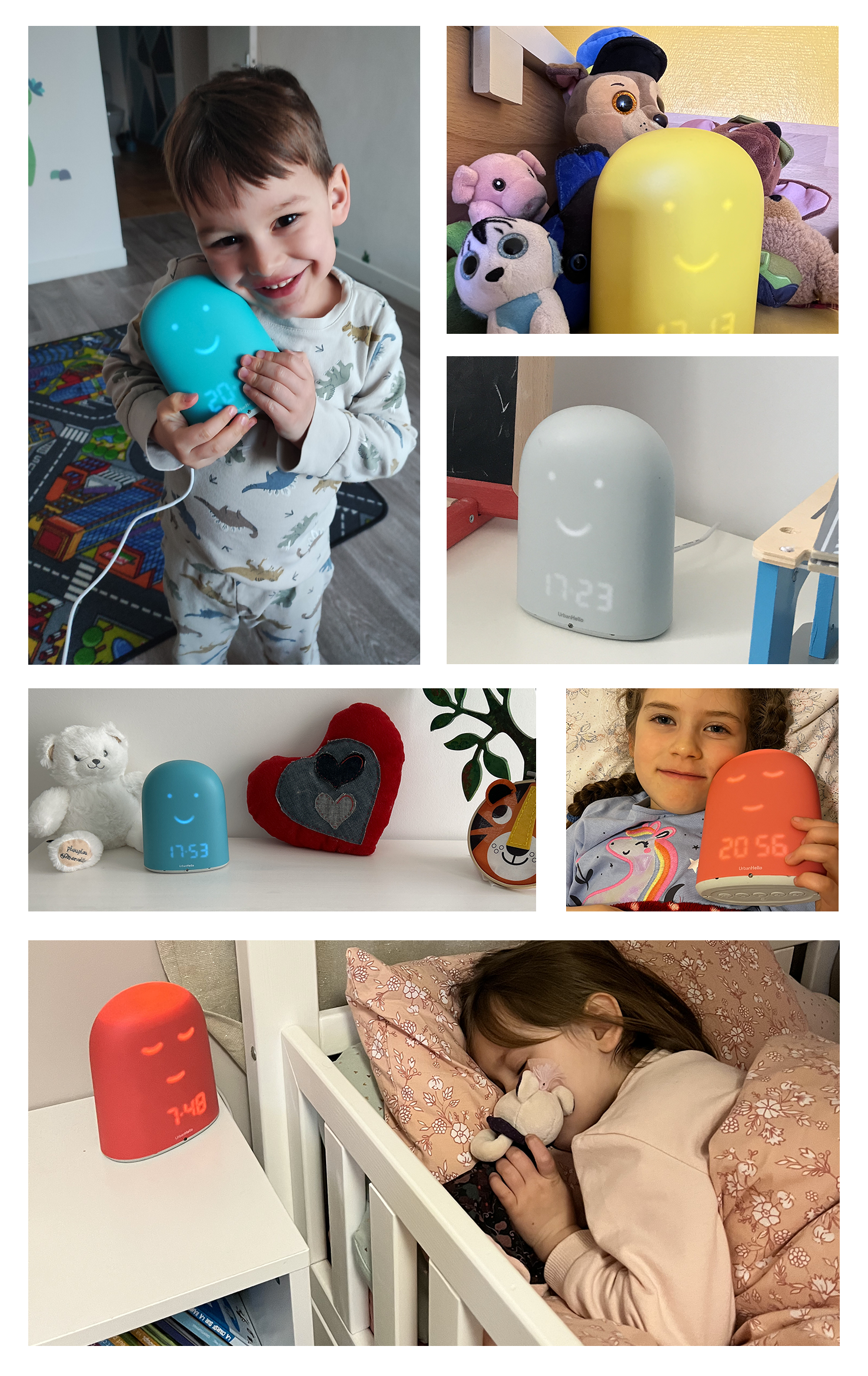Online Sleep & Nap Calculator – Find Your Child’s Ideal Sleep Rhythm

Sleep plays a vital role in your child’s growth and development. It affects their mood, behavior, ability to learn—and of course, their overall health. Yet many parents often wonder: “Is my child getting enough sleep?”, “Is it too little?”, or “Is their sleep schedule appropriate for their age?” These are valid concerns, as every child has different needs depending on their stage of development.
That’s exactly why we created this Sleep Calculator by Age. Easy to use, it lets you check in just a few clicks whether your child’s sleep aligns with age-based recommendations. This way, you can adjust their routine if needed and ensure they’re getting the restorative rest they need to grow and thrive.
My Online Sleep Calculator by Age
How Does Our Sleep Calculator Work?
Our sleep calculator was designed to be simple and intuitive, helping you easily track your child’s sleep. In just a few steps, you'll get a clear overview of their sleep pattern—and any adjustments you might want to make. Here’s how to use it:
- Enter your child’s age: Sleep patterns evolve with age, and needs vary greatly between a newborn, a toddler, and an older child. That’s why the first step is to select your child’s age. The calculator will then adjust its recommendations based on expert guidelines for that age group.
- Provide nighttime sleep details: Bedtime and wake-up time are key indicators for assessing nighttime sleep duration. By entering these, the calculator can accurately determine how many hours your child sleeps at night.
- Add naps: For younger children, naps are a vital part of daily rest. Enter how many naps your child takes during the day and their average duration. This gives a full picture of their total sleep—including daytime rest, which is especially important for babies and toddlers.
- Include night wakings: Night wakings are common in babies and sometimes still present in older children. By indicating how many times your child wakes and how long those episodes last, the calculator can provide a more accurate assessment of your child’s overall sleep quality.
- Total sleep time over a 24-hour period, including both nighttime sleep and naps.
- The distribution of sleep between day (naps) and night.
- A comparison with age-appropriate sleep recommendations, so you can see whether your child is getting enough rest—or if some adjustments may be helpful.
Recommended Sleep Duration by Age Group
| 🧒 Age | ⏰ Sleep Over 24H | ⏱️ Wake Time | 😴 Naps | 🌙 Nighttime Sleep |
|---|---|---|---|---|
| 0 to 1 month | 16 to 20 hours | 30 min to 1 hour | Frequent | 8–10h Interrupted by feedings |
| 2 to 3 months | 15 to 18 hours | 1h to 1h30 | 3 to 6 naps | 9–12h Interrupted by feedings |
| 4 to 7 months | 14 to 18 hours | 1h30 to 2h | 3 to 4 naps | 10–13h 0 to 3 feedings during the night |
| 8 to 14 months | 13 to 17 hours | 1h45 to 2h30 | 2 naps | 10–13h Uninterrupted night |
| 15 to 23 months | 13 to 16 hours | 2h to 4h | 1 to 2 naps | 10–13h Uninterrupted night |
| 2 to 3 years | 12 to 16 hours | 4h to 5h | 1 nap | 11–13h Uninterrupted night |
| 3 to 5 years | 11 to 14 hours | 5h to 6h | 1 nap | 11–13h Uninterrupted night |
| 6 to 12 years | 9 to 12 hours | 8h to 10h | No nap | 9–12h Uninterrupted night |
| 13 to 18 years | 8 to 10 hours | 10h to 14h | No nap | 8–10h Uninterrupted night |
If you’d like to learn more about the recommended sleep durations for children, you can find our full article on the topic right here:
What If Your Child’s Sleep Results Fall Outside the Recommendations?
If the results from our sleep calculator show that your child’s sleep doesn’t align with the recommended ranges, don’t panic. It’s important to remember that every child is unique. Sleep needs can vary from one child to another, even at the same age. Being slightly above or below the average doesn’t necessarily mean there’s a problem.
Understanding the results:
If your child is sleeping a bit more or a bit less than the recommended amount, that doesn’t mean the quality of their sleep is poor. Look at their behavior during the day: Are they generally in a good mood, alert, and full of energy? Are they developing well—physically and mentally? If the answer is yes, chances are their sleep is sufficient, even if it doesn’t match the standard numbers exactly.
Signs of sufficient sleep:
Here are some helpful signs to assess whether your child is getting enough quality sleep:
- They wake up naturally without too much difficulty.
- They are attentive, curious, and energetic throughout the day.
- Their mood is stable, with no clear signs of fatigue or irritability.
- They’re growing and developing well, following their growth curve.
If you notice these signs, it usually means their sleep meets their personal needs—even if the results differ from the typical averages.
Possible adjustments:
If your child’s sleep seems too short, frequently interrupted, or if they seem consistently tired, a few simple changes might help improve the situation.
To support better sleep, it's essential to create a consistent bedtime routine. Routine is key—putting your child to bed at the same time every night helps regulate their internal clock and stabilize sleep cycles. At the same time, be sure to set up a sleep-friendly environment: quiet, dark, and comfortably cool. A calming space makes it easier for your child to fall asleep and stay asleep through the night.
Finally, it’s a good idea to limit screen time before bed. The blue light from TVs, tablets, and phones can interfere with the body’s melatonin production—an essential hormone for sleep.
Reducing screen exposure at least an hour before bedtime allows your child’s body to naturally prepare for sleep, making it easier for them to settle down and fall asleep peacefully.
Discover REMI
THE SMART ALARM CLOCK 😊
REMI and its app bring together everything you need to manage your baby’s sleep!
Its mission? Helping families sleep better — from birth up to age 10.
I bought REMI for my 4-year-old son who didn’t want to sleep alone anymore after his little sister was born. Thanks to the remote wake-up system and bedtime stories I can play from a distance, the issue is completely resolved! I 100% recommend this purchase!






 My Child Won’t Sleep Alone: How to Help Them Gain Independence
My Child Won’t Sleep Alone: How to Help Them Gain Independence
 Letting Baby Cry It Out: Effective, But At What Cost?
Letting Baby Cry It Out: Effective, But At What Cost?
 White noise for baby : a scientific research !
White noise for baby : a scientific research !
 What are the positive effects of napping on memory?
What are the positive effects of napping on memory?
 What Time Should Your Child Go to Bed? The Ideal Bedtime by Age!
What Time Should Your Child Go to Bed? The Ideal Bedtime by Age!